Remember those carefree days when the playground was our kingdom and recess was the highlight of the school day? Long before helicopter parenting and structured playdates, we navigated the unwritten social code of the playground with an instinctive understanding that seems almost magical in retrospect. These weren’t rules posted on a sign or explained by teachers—they were simply understood, passed down through generations of skinned knees and grass-stained jeans like playground folklore.
1. Calling “Do-over” Required a Valid Reason
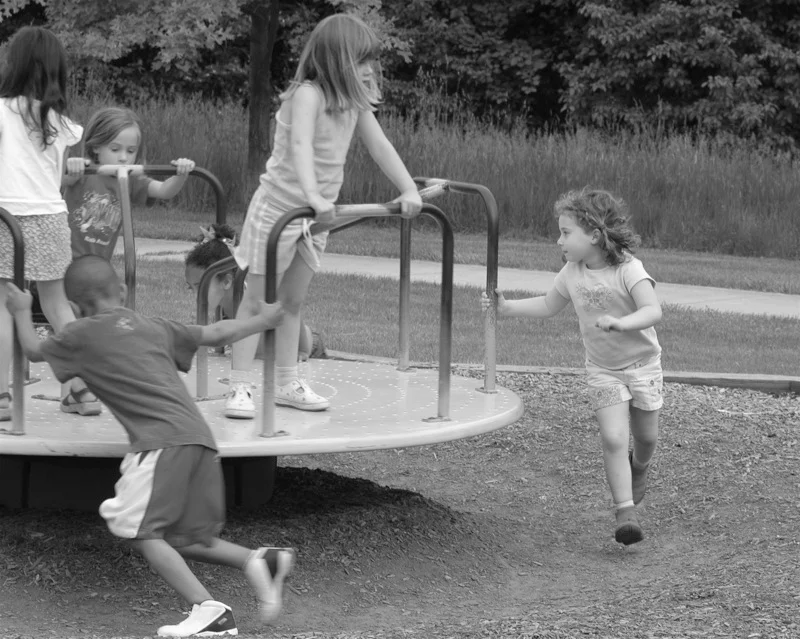
The sacred do-over was playground currency, but you couldn’t just spend it whenever you wanted. A legitimate do-over required something genuinely unfair—like tripping over an untied shoelace during a race or being distracted by the school bell during a crucial moment. The community would silently judge whether your reason passed muster, and frivolous do-over requests quickly earned you a reputation as a poor sport. These days, Miracle Recreation has advice for teaching and encouraging playground etiquette to kids.
Everyone knew there was a daily limit on do-overs, though nobody could tell you exactly what that number was. Using too many would cause eye rolls and whispered accusations of being a “baby” among your peers. The unspoken challenge was always to tough it out rather than call for a do-over, saving them for truly exceptional circumstances when all witnesses would nod in agreement.
2. The Ground Is Lava Rules Were Non-Negotiable

The moment someone shouted “The floor is lava!” everyone understood that touching the ground meant instant disqualification or worse—imaginary death by molten rock. There was no arguing or hesitation allowed—you simply had to leap to the nearest safe surface within seconds or face playground judgment. The beauty of this rule was its universality; it required no explanation even among kids who had never played together before. Mental Floss traces this fun game all the way back to 1950s architecture.
The intensity of “floor is lava” directly correlated to how boring the rest of recess had been up to that point. On particularly dull days, entire playgrounds would erupt into chaos as children scrambled onto benches, climbed jungle gyms, or balanced precariously on the edges of sandboxes. Teachers watching from afar must have wondered what invisible force had suddenly possessed their students to avoid touching the blacktop at all costs.
3. Line-Cutting Was the Ultimate Cardinal Sin
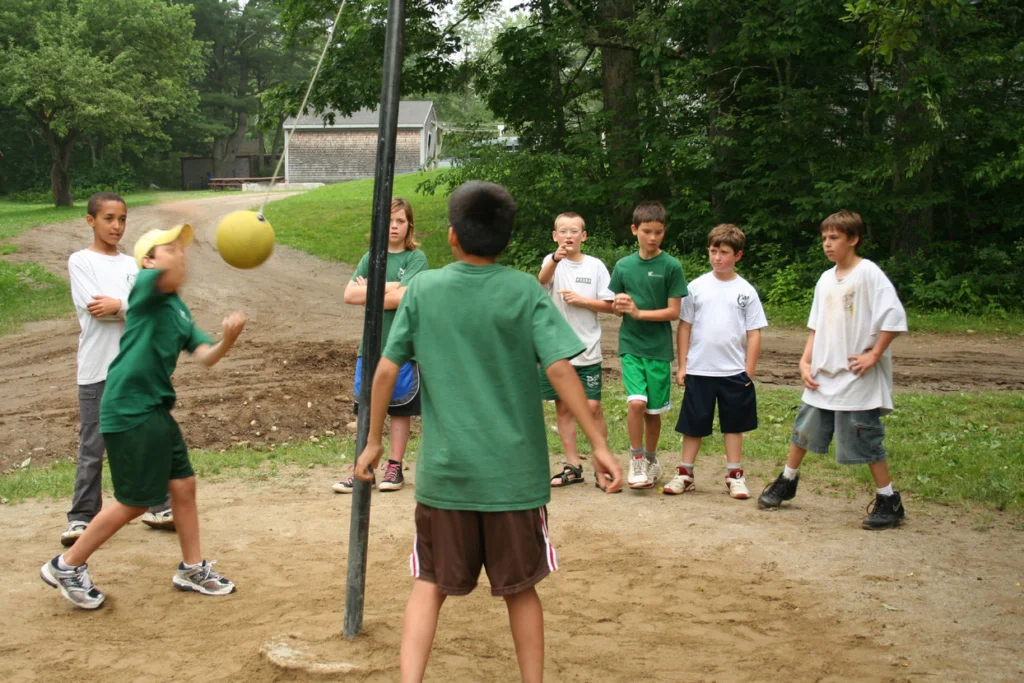
Nothing could destroy your playground reputation faster than cutting in line for the slide or swings. This violation of the social contract was considered so egregious that even teachers rarely needed to intervene—peer enforcement was swift and merciless. The shame of being called out for line-cutting could follow you through several grades, becoming part of your permanent playground record. It’s an issue even adults deal with, and Lifehacker has some tips on how to politely deal with line cutters.
Even in the heat of excitement, children understood the simple fairness of waiting your turn. The concept of “no cuts, no buts, no coconuts” was universally understood long before most kids could articulate more complex moral principles. Those rare, bold souls who attempted to circumvent the queue were met with a unified front of disapproving looks and the dreaded sing-song chant of “no cutting!” that could wilt even the most determined offender.
4. “Dibs” Had Legal Standing Once Properly Declared

The power of calling “dibs” was perhaps our first introduction to property law, creating a temporary ownership claim recognized by all present parties. A properly executed “dibs” on the good swing, the red ball, or the coveted role in a game was binding and rarely challenged by others. The key was speed and clarity—the word had to be audibly declared before anyone else could stake their claim.
What made dibs remarkable was how rarely the system was abused, as though children intuitively understood that excessive dibbing would break the social fabric. There existed an unwritten statute of limitations on dibs—if you called dibs on something and then got distracted by something else, your claim would silently expire. This efficient system of temporary ownership operated with surprisingly few conflicts, considering no adult ever explained or enforced it.
5. Tag Immunities Were to Be Respected Without Question

When someone called “time out” during tag by making a T shape with their hands, this diplomatic immunity was to be honored without dispute. Whether they needed to tie a shoe, catch their breath, or deal with a minor injury, the pause in play was sacrosanct. Breaking the immunity by tagging someone on time-out marked you as someone who couldn’t be trusted to follow even the most basic playground treaty.
The beauty of tag immunities was how they maintained the game’s balance of power without adult intervention. Everyone understood that immunities couldn’t last forever—extended time-outs would be met with groans and accusations of “chicken.” The unspoken equilibrium meant most kids would only use their immunity privileges when genuinely needed, ensuring the game could continue with maximum enjoyment for all participants.
6. Saved Seats Required a Physical Placeholder
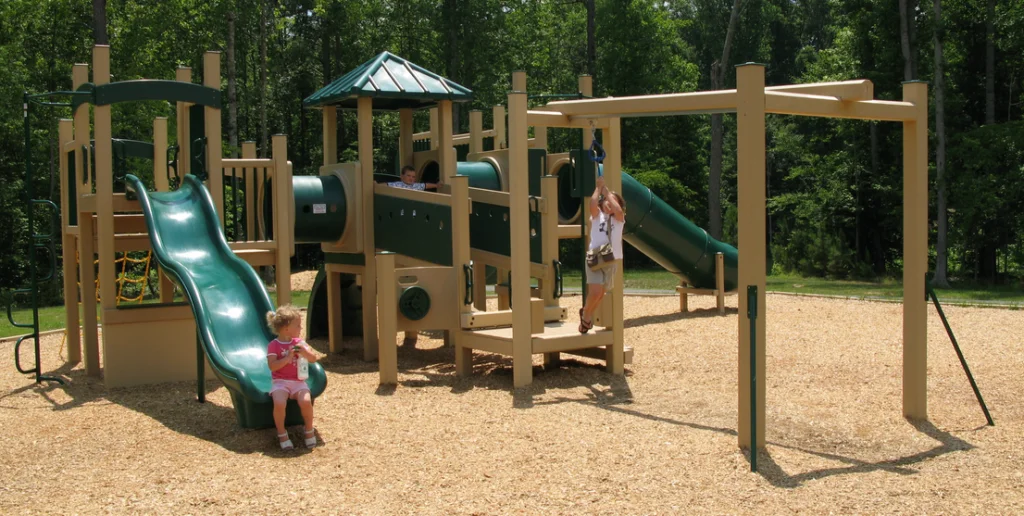
The concept of saving a seat for a friend was universally recognized, but everyone knew it required some form of physical marker—a jacket, a lunch box, or even a pencil case. The strength of your claim was directly proportional to the size and personal value of the item left behind. A flimsy piece of paper might be “accidentally” moved, but no one would dare disturb a prized backpack or favorite sweater.
This system taught us early lessons about representation and trust, as your item stood in your place, a physical embassy of your rights. Of course, there were always boundary-pushers who tested the limits by attempting to save entire lunch tables with a single eraser, but peer judgment quickly established reasonable norms. The most respected seat-savers were those who used the minimum necessary force—a small but personal item that clearly communicated “this spot is spoken for” without excessive territory-grabbing.
7. The Jinx System Was Legally Binding
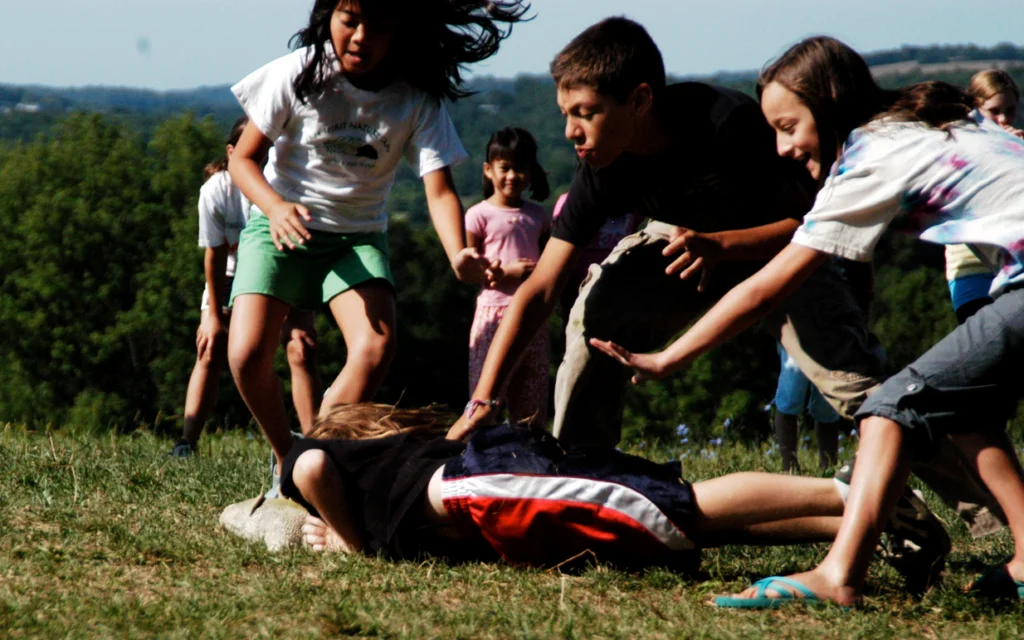
Saying the same word simultaneously as another person triggered an immediate “jinx” declaration, and the rules governing this verbal coincidence were strictly observed. The jinxed party was expected to maintain silence until someone said their name, creating a peculiar form of playground purgatory. Breaking jinx silence voluntarily was considered deeply shameful, a breach of honor that could tarnish your reputation as a rule-follower.
What’s fascinating about the jinx tradition was how it transcended geographic boundaries and generations with remarkably consistent enforcement. The joy of catching someone in a jinx was matched only by the smug satisfaction of watching them struggle to communicate without speaking. Of course, true friends would eventually release you from your silent prison by saying your name—though the timing of this mercy often depended on how entertaining your mute pantomimes had become to the group.
8. Finders Keepers Had Important Exceptions

The “finders keepers” doctrine governed lost items on the playground, but with sophisticated nuance that went beyond the simple rhyme. Everyone understood that finding money, trading cards, or marbles was different from finding someone’s jacket or lunchbox. The value, personalization, and identifiability of the item created an unspoken hierarchy of finder’s rights that most children navigated intuitively.
The true test of character came when discovering something of obvious personal value—a retainer, a house key, or a treasured toy. In these cases, the finder faced a moral crossroads visible to all witnesses: keep it and be labeled as “that kid who stole Sarah’s bracelet,” or return it and earn the badge of trustworthiness. This system taught early lessons about community standards that formal rules could never capture—sometimes, the technically permissible “finders keepers” was trumped by the greater law of “doing the right thing.”
9. Trading “No Backsies” Was Ironclad Contract Law

Once items were exchanged and the sacred phrase “no backsies” was invoked, the transaction was considered permanently binding. This verbal contract had more perceived legal weight than most written agreements, creating an early understanding of commitment and consequence. The child who attempted to reverse a no-backsies trade would quickly find themselves ostracized from future exchanges, labeled as unreliable in the playground economy.
What made this rule remarkable was how it instilled a sense of careful consideration before agreeing to terms. Children learned to inspect items thoroughly, weigh their attachment to their possessions, and consider the long-term consequences before shaking hands on a no-backsies deal. These playground negotiations prepared us for adult concepts like buyer’s remorse and contractual obligation without a single formal lesson on economics or law.
10. Ghost in the Graveyard Required Full Commitment

When twilight games of Ghost in the Graveyard began, half-hearted participation was simply not tolerated. The spooky atmosphere required everyone to fully commit to the terrifying experience—screaming with genuine fear when caught, hiding with trembling anticipation, and taking the role of the ghost with theatrical seriousness. Those who tried to play it cool or refused to be scared were quickly excluded from future games, their invitations mysteriously disappearing like specters at dawn.
The most respected players were those who balanced on the perfect edge of controlled fear—scared enough to add excitement but composed enough to follow the rules. Parents watching from porches often misunderstood the complex social dynamics at play, seeing only children running and screaming in the gloaming. What they couldn’t see was the sophisticated self-regulation happening, as children pushed themselves to just the right level of fright that kept the game thrilling without becoming truly frightening.
11. Four-Square Hierarchy Was a Strict Meritocracy
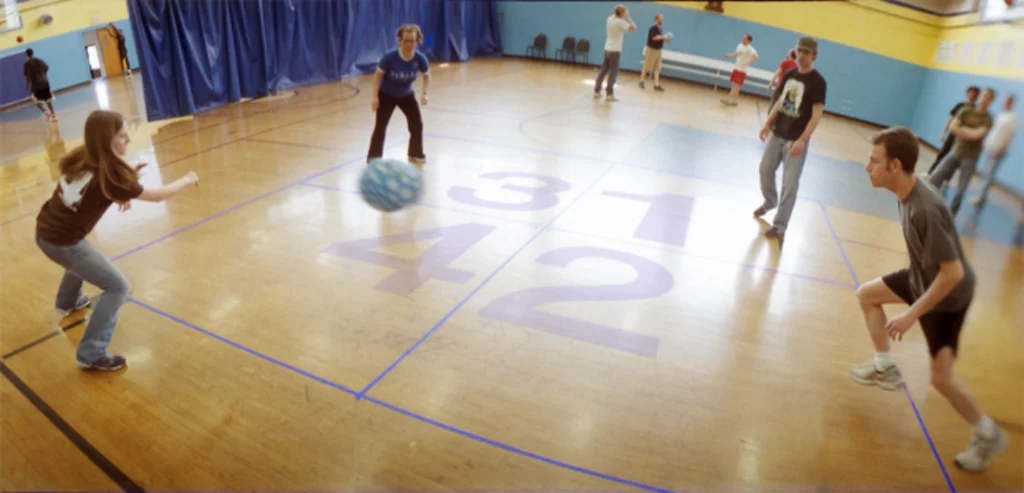
The four-square court operated under a clear progression system where victory earned you advancement toward the coveted server’s square. No amount of whining, friendship, or external status could circumvent this pure meritocracy of handball skills. The king’s square was earned through demonstrated ability, creating a rare space where athletic prowess alone determined your position in the hierarchy.
What made four-square remarkable was how this strict progression created both accountability and aspiration. Even the most popular kid in school could be dethroned by a quiet newcomer with quick reflexes and good aim. Children who struggled in other social arenas could find respect and position through dedicated practice, learning the valuable lesson that effort and improvement could literally change their place in the world—at least within the painted lines of the four-square court.
12. The “Last Game” Announcement Extended Time Indefinitely
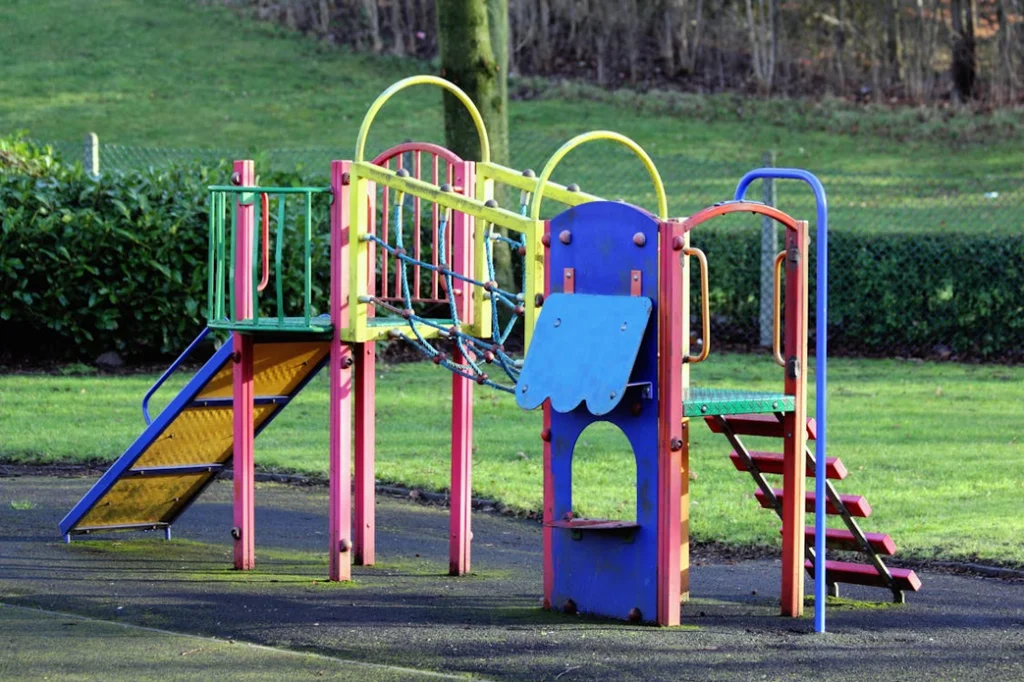
When recess was winding down, the declaration of “last game” created a time-warping effect that everyone tacitly agreed to honor. This final round somehow always lasted longer than physically possible, stretching the boundaries of time as everyone pretended not to hear the first bell. The unspoken agreement was that no one—not even the most rule-following students—would mention how “last game” had somehow spawned several additional “very last” and “absolutely final” iterations.
Teachers and playground monitors understood this chronomancy as well, often allowing the extended finale to continue with knowing smiles. The magic of “last game” was its dual nature—both acknowledging the impending end of fun while simultaneously defying it through collective willpower. This bittersweet extension taught us early lessons about savoring final moments and the gentle rebellion of pushing boundaries just enough to grab a few more precious minutes of play before returning to the structured world of classrooms.
Looking back now as adults with jobs, mortgages, and our own children, these unwritten playground laws seem both silly and profound. They formed our earliest understanding of justice, fairness, negotiation, and social contracts—all without a single textbook or formal lesson. Perhaps what we need in our complicated adult world is to remember these simple principles: wait your turn, honor your word, play fair, and always respect the sacred power of “last game.” After all, the wisdom of the playground might just be the wisdom we need most.


